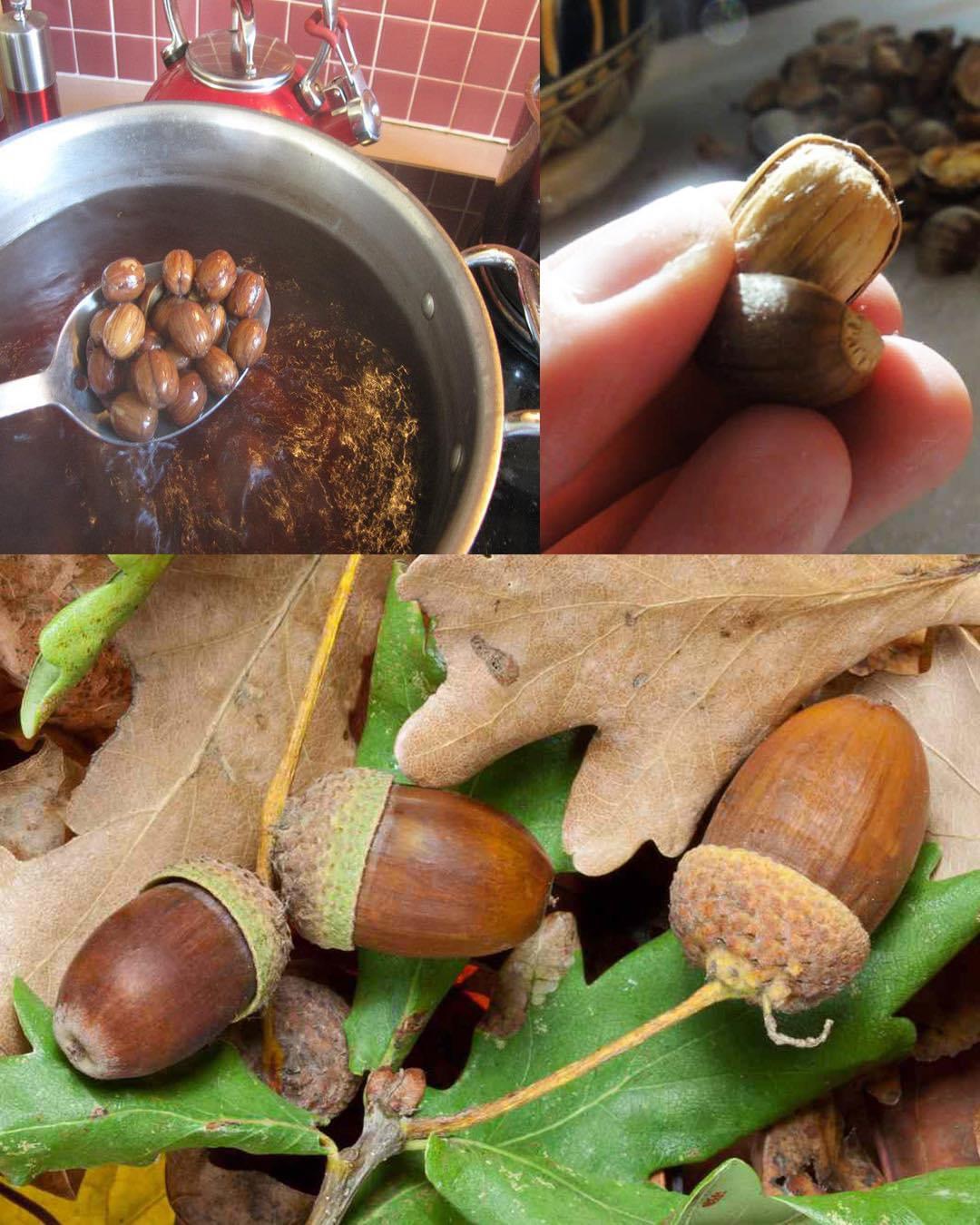
In the tapestry of autumn’s bounty, amidst the vibrant hues of falling leaves, lies a humble, often overlooked treasure: the acorn. This modest nut, the fruit of the majestic oak tree, has nourished a wide array of creatures and cultures throughout history. Yet, in modern times, its value has been largely forgotten, overshadowed by more conventional food sources. This article aims to rediscover the acorn’s potential, not only as a sustainable food source but as a powerhouse of nutrition and health benefits. As we delve into the world of acorns, we uncover the secrets to transforming these nuts into a palatable delight, along with exploring the myriad benefits they offer. Embracing acorns in our diet is not merely a nod to our foraging ancestors but a step forward in our journey towards sustainable living and nutritional wellness.
The Nutritional and Health Benefits of Acorns
Acorns are more than just a survival food; they are a testament to nature’s abundance, offering a wealth of health benefits that deserve recognition. Here is a comprehensive list of the many virtues these nuts hold:
1.Rich Nutrient Profile: Acorns are a powerhouse of essential nutrients, including vitamins A and C, which are vital for immune function and skin health, respectively. They also offer a good dose of B vitamins, crucial for energy metabolism and brain health.
2.Mineral-Rich: These nuts are a source of important minerals such as potassium, which regulates blood pressure; calcium, essential for bone health; and magnesium, necessary for over 300 biochemical reactions in the body.
3.High in Fiber: With a high fiber content, acorns can aid in digestion, helping to prevent constipation and promoting a healthy gut. Fiber is also key for maintaining a healthy weight and lowering the risk of heart disease.
4.Antioxidant Properties: Acorns contain antioxidants that help combat oxidative stress and may reduce inflammation, lowering the risk of chronic diseases like heart disease, diabetes, and cancer.
5.Heart Health: The unsaturated fats in acorns can contribute to a healthy heart by lowering bad cholesterol levels and potentially reducing the risk of heart disease.
6.Gluten-Free Alternative: Acorn flour offers a gluten-free alternative for baking and cooking, making it an excellent option for those with gluten sensitivities or celiac disease.
7.Energy Boosting: Being energy-dense, acorns can provide a sustained release of energy, making them an excellent addition to an active lifestyle.
8.Sustainable Food Source: Foraging for acorns encourages a connection with nature and promotes a sustainable approach to food, reducing reliance on processed and imported goods.
9.Cultural and Historical Significance: Incorporating acorns into modern diets honors the traditions of many indigenous and ancient cultures for whom acorns were a staple food, fostering a deeper appreciation for our natural world and its history.
10.Versatile Culinary Uses: From flours to oils, acorns offer a versatile base for a variety of culinary creations, enabling the exploration of new flavors and textures in cooking and baking.
11.Economic Advantage: Foraging acorns can offer economic benefits, reducing grocery bills and fostering self-sufficiency.
12.Weight Management: The combination of fiber, healthy fats, and protein in acorns can help in feeling fuller longer, aiding in weight management efforts.
The benefits of acorns extend far beyond their nutritional value, encompassing environmental sustainability, economic savings, and a reconnection with nature’s rhythms. As we turn to the practical aspects of harvesting and preparing acorns, we embark on a journey not just to rediscover an ancient food source but to embrace a lifestyle that values the bounty nature provides. Stay tuned for the next segment, where we will explore how to unlock the edible potential of acorns, ensuring they can be enjoyed safely and deliciously.
The first step in utilizing acorns is gathering them, a task best undertaken in the early autumn when they are ripe and plentiful. Look for acorns that are firm, without any holes or cracks, as these imperfections may indicate the presence of insects or rot. Green acorns are immature and should be left to ripen, while those that are brown and detach easily from their caps are ready for use. It’s a sustainable practice to gather from the ground, leaving enough acorns for wildlife and the regeneration of the oak forest.
Processing Acorns to Remove Tannins
1.Shelling: Begin by removing the acorns from their shells. This can be done manually or with the aid of a nutcracker. It’s a labor-intensive step but crucial for accessing the nut meat within.
2.Leaching Out the Tannins: The most critical step in making acorns edible is leaching out the tannins, which are compounds that give raw acorns their bitter taste and can be harmful in large quantities. There are two primary methods for leaching: cold and hot leaching.
1.Cold Leaching: This method involves soaking the shelled acorns in cold water. The water should be changed when it becomes discolored, approximately every 12 to 24 hours, until the water remains clear, indicating that the tannins have been removed. This process can take several days to a week, depending on the acorn variety.
2.Hot Leaching: Hot leaching is faster than cold leaching but requires more active management. Boil the acorns in water, and change the water when it turns dark, repeating this process until the water remains mostly clear. This method can remove the tannins in a matter of hours.
3.Drying: After leaching, the acorns need to be dried to prevent mold and prepare them for grinding. Spread the acorns on a baking sheet and dry them in an oven at a low temperature, in a dehydrator, or air-dry them in a sunny, well-ventilated area.
Making Acorn Flour
Once dried, the acorns can be ground into flour using a food processor, blender, or hand grinder. The resulting flour should be stored in an airtight container in a cool, dry place or frozen for extended storage. Acorn flour can be used as a substitute for traditional flours in baking, offering a nutty flavor and nutritional boost to bread, pancakes, and other baked goods.
Incorporating acorns into our diets is a journey back to the roots of human sustenance, a nod to the wisdom of our ancestors who relied on the natural world for their dietary needs. This journey is not just about adding a new ingredient to our pantry but about embracing a deeper connection with nature, understanding the cycles of growth and renewal, and appreciating the abundance that surrounds us. As we integrate acorns into our meals, we partake in a tradition that spans centuries and cultures, celebrating the oak tree’s gift and its enduring significance to both the environment and our health. Let the humble acorn inspire you to explore, innovate, and appreciate the simple, yet profound, pleasures of foraging and feasting from the land.





